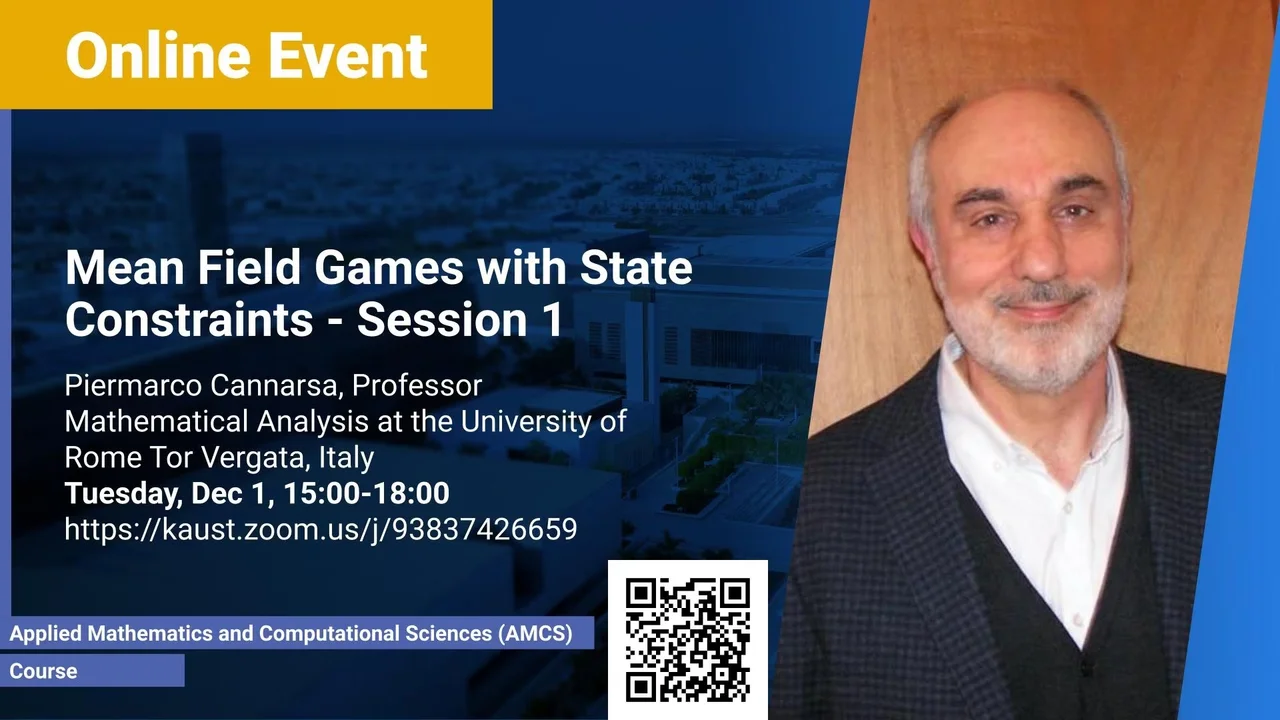
Mean Field Games with State Constraints - Session 1
- Professor Piermarco Cannarsa, Mathematical Analysis at the University of Rome Tor Vergata, Italy
KAUST
The theory of Mean Field Games (MFG) has been developed in the last two decades by economists, engineers, and mathematicians in order to study decision making in very large populations of “small" interacting agents. This short course will be focused on deterministic MFG, which are associated with a first order PDE system. We will address the problem assuming that agents are subject to state constraints, when classical PDE techniques are of little help. First, we will show how to prove the existence of solutions by the so-called Lagrangian approach, which interprets equilibria as certain measures on the space of paths that each agent can choose. Then, we will address regularity issues for such generalized solutions, deriving point-wise properties that allow to recover the typical MFG system. Finally, we will study the asymptotic behavior of solutions to the constrained MFG system as time goes to infinity, borrowing ideas from weak KAM theory.
Overview
Abstract
The theory of Mean Field Games (MFG) has been developed in the last two decades by economists, engineers, and mathematicians in order to study decision making in very large populations of “small" interacting agents. This short course will be focused on deterministic MFG, which are associated with a first order PDE system. We will address the problem assuming that agents are subject to state constraints, when classical PDE techniques are of little help. First, we will show how to prove the existence of solutions by the so-called Lagrangian approach, which interprets equilibria as certain measures on the space of paths that each agent can choose. Then, we will address regularity issues for such generalized solutions, deriving point-wise properties that allow to recover the typical MFG system. Finally, we will study the asymptotic behavior of solutions to the constrained MFG system as time goes to infinity, borrowing ideas from weak KAM theory.
Brief Biography
Piermarco Cannarsa graduated in Mathematics from the Scuola Normale Superiore and University of Pisa in 1979. Since 1990, he is a Professor in Mathematical Analysis at the University of Rome Tor Vergata, where he has been the advisor of 14 Ph.D. thesis. Since June 2018, Cannarsa is the President of the Italian Mathematical Union. Previously, for eight years since June 1999, he was the Vice-President of the Istituto Nazionale di Alta Matematica, a national institution for promotion of mathematical education and research.